What is Research?
An exercise in slow research
The Harry Ransom Center’s “What Is Research” project ran from 2019-2020. The corresponding “DARE To Research” award was a one-time activity, funded at that time by the University of Texas at Austin Division of Diversity and Community Engagement.
Research is a common activity that unites and underscores much of academic life. Each discipline practices and communicates research differently: across critical and creative methods, interpreted through qualitative and quantitative frameworks, performing from libraries to laboratories, supported by different funding structures, professional practices, and networks. Despite differences, research shares a common aim: never satisfied with answers, it asks new questions.
At the Harry Ransom Center—which is inherently interdisciplinary—research acts as a heartbeat that pulses new life into our collections. By asking a basic question—“What is Research?”—we hope to expose porous spaces between our practices that lead researchers, faculty, students, staff, and the public to interpret the collections. The process of asking this question will hopefully reveal intersections and tensions, which become opportunities for future work. We hope to spur a conversation around research, opening more relationships between collections and communities.
Although we think that we know what it means to “research,” our approaches grow with each new researcher who we meet. We want to invite new researchers to expand the possibilities for research, both of our collections and beyond, engaging not only what we think but how we think. We look forward to having you join the conversation. What is Research to You?
To submit to the series, review the guidelines and complete the form below.
-
Guidelines for Submissions (now closed)
Storytelling is the biggest draw for a reader. Remember that your piece will be part of a series on “What is Research?”, so thread this question through your perspective and approach. Invite a reader into your method through specifics to animate the process and value of research. Word count is flexible: 500-1,500 words. Ground your piece in concrete details and, either centrally or peripherally, connect your piece in some way to the Ransom Center's collections. The ultimate goal is an interesting, well-written essay.
This series hopes to illuminate interdisciplinary methods, material and digital processes, cultural contexts, formal and informal institutional frameworks, and other influences that shape research at this moment in history. Each piece should humanize and particularize the stakes of research. What brings research alive? Why does research matter? What pressing research questions enable stories to be told? How does your perspective, training, project, and approach contribute to our understanding of research? How might the questions that you ask suggest future research pathways?
Readers are from a broad, interdisciplinary audience—beyond academics and people working with archives and special collections. Keep your content and language accessible to a general audience. The Communications Team reserves the right to edit for tone, length, and clarity and will discuss any edits for your review and approval prior to publishing. For direct quotes, include citations for further reading; given the general style, keep citations to a minimum. When possible, we love to share articles bilingually, so if you are interested in translating/writing your article in both English and another language, please let us know! We wish to include a medley of voices and perspectives in this series.
This series runs through the 2020-2021 academic year. Read the launch piece, and see the archive of articles below.
-
Diversity Awards for Research Engagement
(DARE) + Award Recipients
As we work to build a more inclusive research community, the Harry Ransom Center will award prizes of up to $1000 for submissions to the What is Research? Forum that present innovative research in support of diversity, equity, inclusion, and accessibility. DARE Awards will be granted in multiple categories: faculty (including contingent faculty), students, staff, and outside researchers (including current and former fellows). This initiative invites open submissions to scholars, practitioners, and creatives from in and outside The University of Texas at Austin. Contributions that highlight underutilized collections related to underrepresented communities will be considered for the award. We hope this series will showcase more diversity in research, ask new questions of our collections and practices, and provide pathways for new researchers to engage with and grow the Ransom Center community. In addition to the cash prize, selected articles appeared in the Ransom Center Magazine Online.
These Awards are generously sponsored thanks to UT's Vice Provost for Diversity, Senior Vice Provost for Academic Affairs, Senior Vice President/Chief Financial Officer, and Vice President for Research.
DARE Award Recipients
Shared Faculty Award
Tanya Clement
Lauren Gutterman
Julie Hardwick
Jennifer WilksShared Current/Recent Graduate Student Award
Caroline Barta
Diana Leite
Coyote Shook
Gaila Sims
Amy VidorShared Staff Award
Daniel Arbino
Andi Gustavson
Ester Harrison
Anne TerrillShared External Researcher Award
John Bak
Iris Jamahl Dunkle
Julia Elsky
Erin McGuirl
-
Submit to What is Research?
Project
Thank you for your interest in this research project. Submissions are now closed.
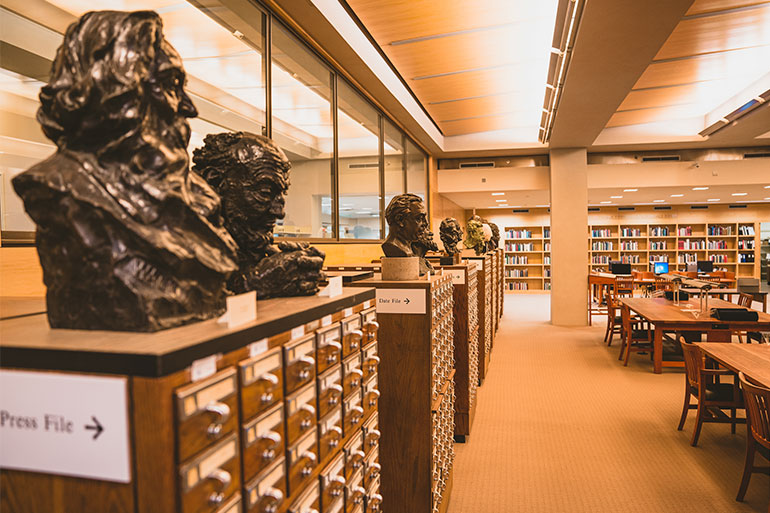
What is Research?
An exercise in Slow Research
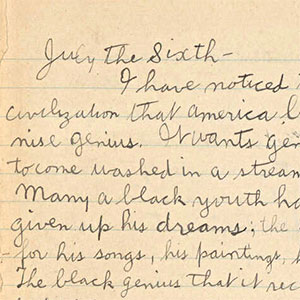
By asking a basic question—“What is Research?”—we hope to expose porous spaces between our practices that lead researchers, faculty, students, staff, and the public to interpret the collections.
Listen Slow:
Researching poet
Anne Sexton
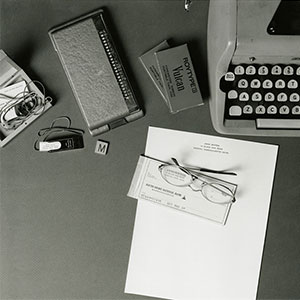
While I’m doing this slow, slow work, I’m learning about Sexton’s long and slow process of creating poetry … and about the process for making my own slow research accessible to others …
Learning how to
read again
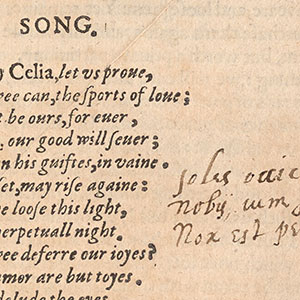
When you read an old book, you are being asked to enter a different world that only becomes maximally legible when you do the work to engage with it on historically situated terms.
Taking time to teach hidden histories in the archives
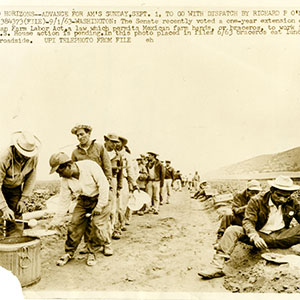
I bring students to the Center because I want to humanize the past by putting them into close contact with items from the historical events and transformations we are learning about in class.
The right to
research slowly
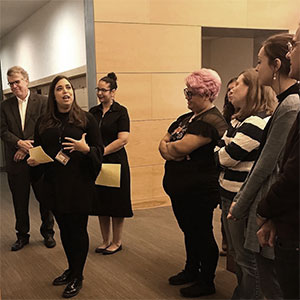
and Gaila Sims
Research systems become difficult to navigate when the subjects do not have established collections.
Podcast as model for collaborative research
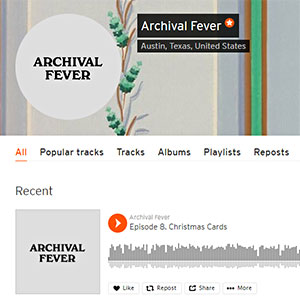
Dr. Caroline Barta
Collaborative scholarship provides opportunities for research that builds community and increases accessibility. It also suggests a way to work across time and space.
Hands-on research aids preservation efforts

Caring for the Ransom Center's vast and varied collections is interdisciplinary in nature and sometimes requires a research process based on understanding the physical nature of objects.
Opera, diaspora, and interdisciplinary inquiry
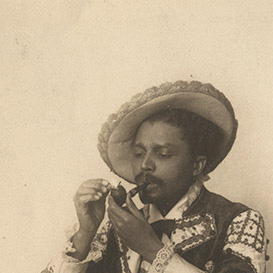
My latest fascination with Carmen began 14 years ago, when I was spending a semester in Paris on a faculty exchange.
Research as
time traveling
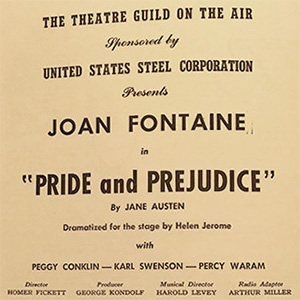
Research among archives enables time travelling into the past. Moving a project forward, however, is a far slower process—one that remains grounded by material realities and constraints.
The passion to
push the paradigm
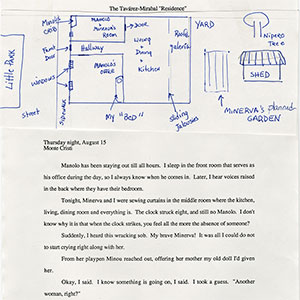
Research begins with passion. A passion to understand and, if we are lucky, to connect with the research in some personal way.
DARE to Research
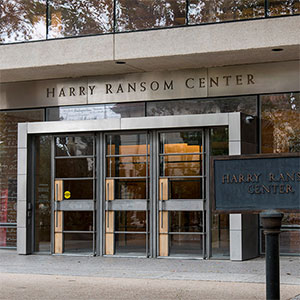
Entrants who DARE to share their research will help us grow a sense of the Ransom Center as a living library as we seek new ways to make collections accessible and open to new interpretations.
Scholarship in process
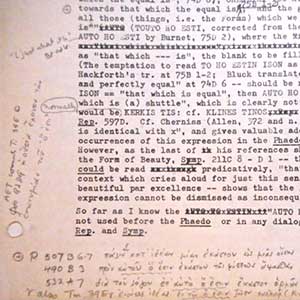
Research into philosophical texts, when they are so distant in time, requires a lot of effort to identify and make sense of implied assumptions.
Rethinking disability and research
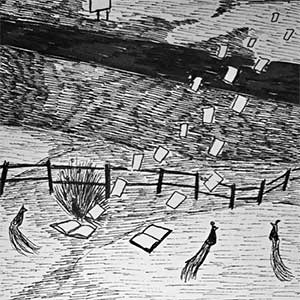
Leaning in on the academic “misbehavior of rest” and sitting with the anxiety of stillness within the framework of “publish or perish” has given my research a bitter-richness it would otherwise lack.
The women who made Selznick’s screenplays
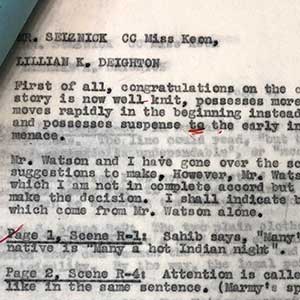
Recognizing the labor of Hollywood’s researchers and secretaries not only refines our understanding of the history of the studio system, it also contributes to the history of American print production in the twentieth century.
Jean Malaquais and the life of a novel
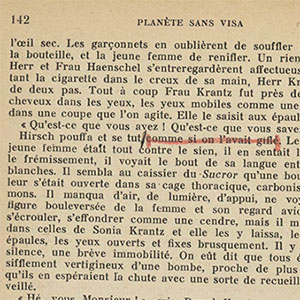
Researching the life of a novel means uncovering the traces of how it was written—not only the edits, corrections, and additions made to a manuscript, but also the conversations in letters or in diaries.
The Ransom Center & NAGPRA: A team effort in research

One of the challenges within the Center’s oldest collections is that vital provenance information from the original collector, the estate, or the curator was sometimes not documented or misidentified…
Unravelling layers of mysteries
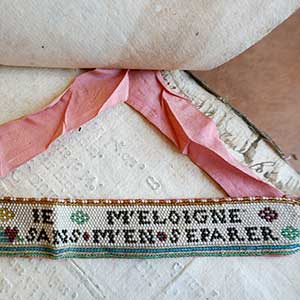
Fascinating material held at the Ransom Center attests to some of the tensions that are at the heart of young people’s relationships, and of my book, and with which my students are very familiar.
Researching microbiography
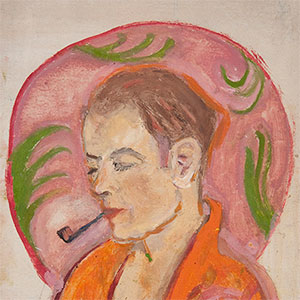
A microbiography fills in the known and the unknown gaps of a subject’s life, providing points of profound depth to the biography’s far-reaching surface, a vertical narrative to the horizontal history of biographical writing.
Sara Coleridge:
A life unfolding
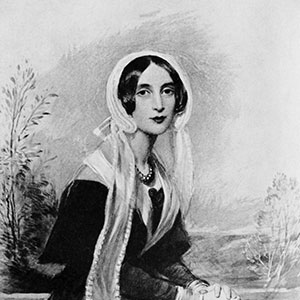
Unlike printed words in a bound volume or transcripts that risk sanitizing history, handwriting produces an entirely different reading experience. Words unfold, as they were written originally, and events take on new meaning…
Slowly, and then
round again
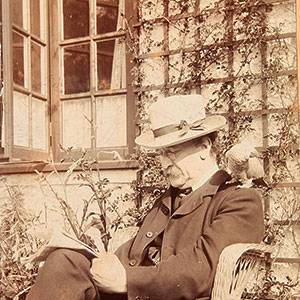
While there was no instant success in my research journey, no immediate cascade of riches, that was no bad thing—because research is not a fast process…
The slow pleasures
of research
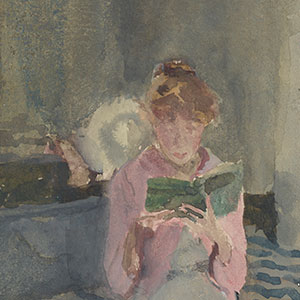
While digital materials can suggest new avenues of inquiry, one of the greatest pleasures of research is visiting an archives in person—discovering new clues from the material forms of novels, books, and other media.
Teaching research online during a pandemic
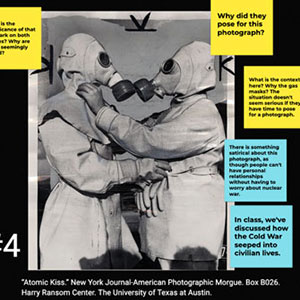
We want to facilitate spaces for students to engage with diversity in the Ransom Center’s collections and to share their own diverse perspectives. This work involves more than merely showing an isolated item but also sharing its context…
Etched Archive:
The Ransom Center Windows
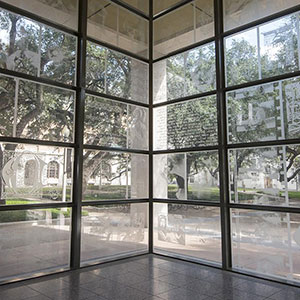
The multi-storied windows capture the spirit of the vast collection within its walls, containing irreplaceable books, manuscripts marked with artists’ scribbles, sundries, magic posters, photographs, screenplays, and much more.
Research as conversation in search of truth
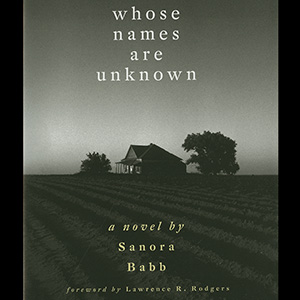
Biography is a long, slow process of careful research … Reading diaries and letters and sifting through artifacts … As a biographer, going to an archive is how you find the person you are writing about.
The slow research of collection development
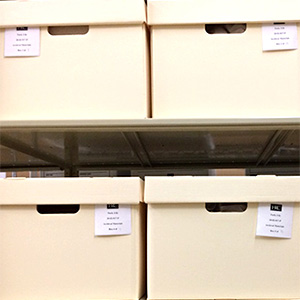
The research of collection development is daily work…. We devote considerable time and effort to building relationships directly with artists, writers, collectors, booksellers, art dealers, and with faculty, peers, and other experts.

